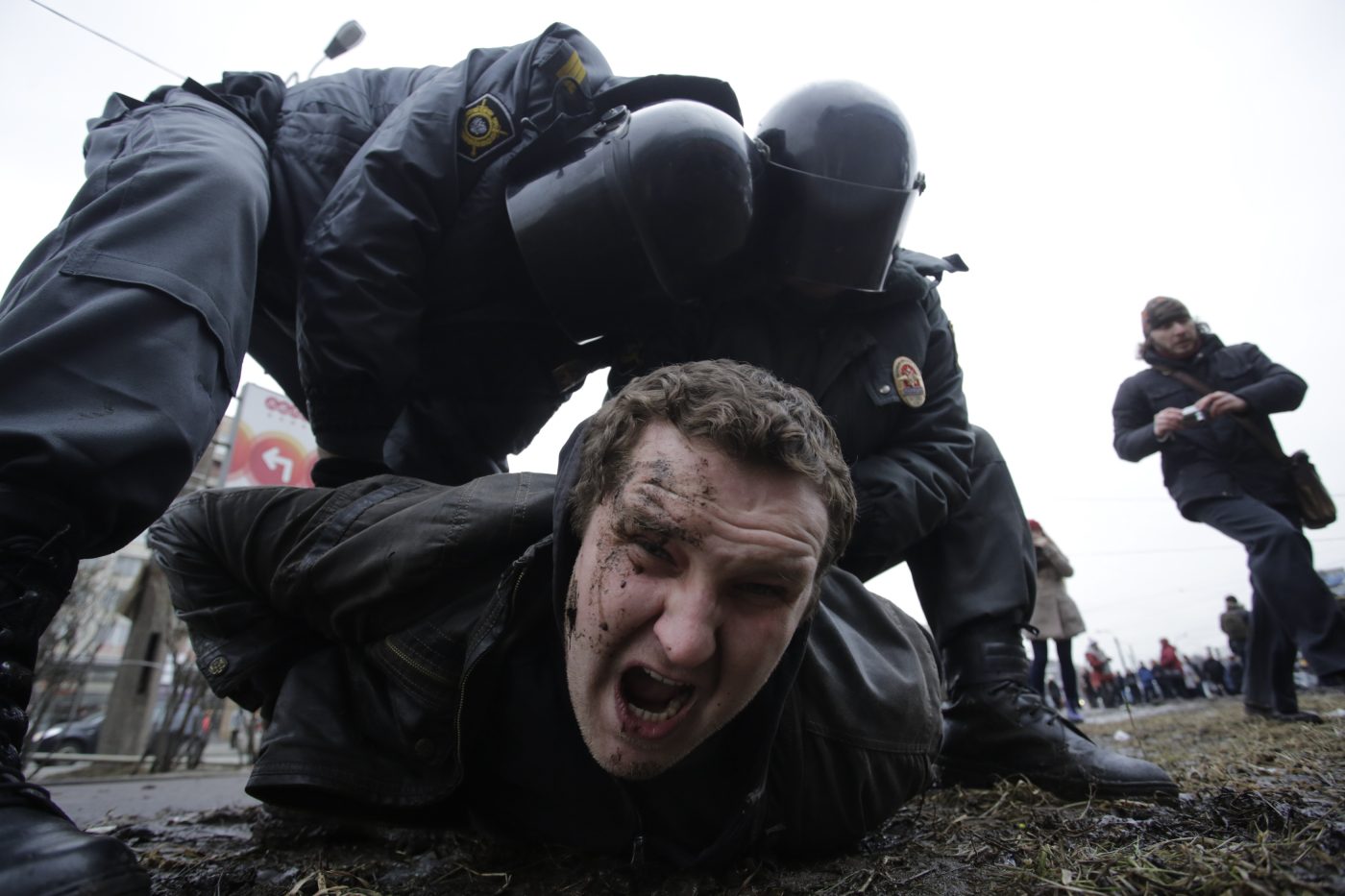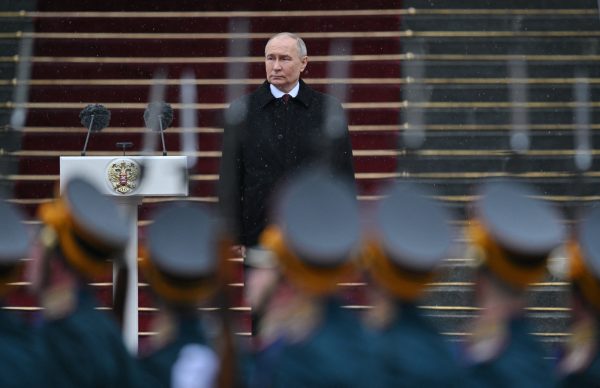Elena Davlikanova:
The majority of Ukrainians, who understand the scale of the struggle to become a democracy, would not wager on Russia being democratic anytime soon. The issue is not that the state in all its previous ‘reincarnations’, has never been democratic, but rather that it currently lacks a strong desire to become one.
Democracy needs democrats, true democrats, not just those standing alone against the system. For the past 20 years, many such people emigrated from Russia; others have been murdered, like Anna Politkovskaya or Boris Nemtsov, while others are imprisoned, like Vladimir Kara-Murza or Ilya Yashyn.
Moreover, those dissident leaders still alive hardly enjoy mass support. Many citizens believe that the perestroyka and the (very brief) attempt at democracy, rather than the failing economic policies of the Soviet Union, are to blame for the economic pain of the 1990s. By contrast, Ukrainians have experienced three revolutions and a deadly and expanding war, Homo-Sovieticus is close to extinction.
Lyubov Sobol:
Indeed, the Russian state makes no attempt to become a true democracy; quite the opposite. And yet, Russians do want to live in a democracy. Ask anyone if they want to live in North Korea, and 10 out of 10 will give a clear no.
Many live under the illusion that state policy depends on them and even believe that if they wanted, they could change the president through an election. Putin maintains this façade — he doesn’t formally abolish the constitution or his increasingly rigged elections and cynically emphasizes that all actions should be within the framework of the law.
Why does he lie, manipulate, and create the appearance of democracy through his propaganda? Precisely because Russians do not want to live under a dictatorship, something shown by their overthrow of the Soviet Union.
Elena Davlikanova:
This picture of Russian people suffering from the regime while longing for liberation does not withstand scrutiny.
Living standards in Russia rose in tandem with Putin’s leadership, which was funded by revenue from natural resources. This is why many people associate autocracy with economic growth and order. Decades of human rights abuses and oppression caused a sizable portion of the public to believe they cannot affect or change anything. Putin’s experiment on the Russian people has been a success.
Of course, in a nation of 140 million, there will be individuals with democratic views, but they are a dispersed and impotent minority. Although Russians accept the idea of human rights, they also accept that many minority groups should be excluded from this benefit. Thus, the population is co-constructing a regime and not thinking at all about its collective political responsibility.
Lyubov Sobol:
I strongly disagree that only a minority of Russians aspire to democracy. Whenever there were relatively free elections, Russians voted for the opposition. But these have increasingly been rigged by the authorities — as with Moscow’s 2022 elections — to ensure opposition candidates didn’t win.
This isn’t exclusive to Moscow; in 2018, the leading opposition candidate in Primorsky Krai was barred from a hastily halted election, resulting in a win for Putin’s choice. Across Russia, from the Northwest to the Urals, Vladimir region, Khabarovsk, and Ingushetia, Russians favored the opposition, but the authorities consistently obstructed the people’s will.
Elena Davlikanova:
Ukraine and Russia stood on the democratization path simultaneously in 1991 but ended up at opposite political poles. Thirty years later, they are engaged in a war rooted not in linguistic, ethnic, or religious differences but in a profound ideological difference — one puts the human in the center of its value system, while the other sees the human being as raw material for imperialistic grandeur. Ukrainians have been this raw material for too long and know the difference.
The risk for both countries’ futures is that the West agrees to a fragile peace agreement to end the conflict by pretending some future tyrant is actually a liberal willing to be reasonable. Ukrainians know that the war was never Putin’s war; it was Russia’s war, and the only way to bring long-lasting peace is an in-depth change in Russian society that has still not finished its homework on de-Stalinization.
How many decades might this decolonization of the Russian mentality take? Would Russians be willing to jettison the idea of “greatness” for the idea of mature relations with their neighbors while taking responsibility for Soviet and post-Soviet crimes? It’s hard for any human to recognize one’s wrongdoings. It is even harder to pay this price to open the way to a better future.
Lyubov Sobol:
Russia shouldn’t replace one tyrant speaking of democracy with another. The West should trust no Russian leader until their actions prove their worth. Only tangible decisions and reforms matter, with changes to the security structure essential for stability.
But saying that Russians can’t embrace democracy is false, as shown by the contrast between North and South Korea, debunking any notion of a “servility gene.”
Russians chose democracy during perestroika, but it faltered when leaders prioritized personal gain over national well-being. Future democratic politicians must resist financial temptations for Russia to truly change. For lasting reform to take root, they should span at least two electoral cycles, including an election endorsing continued reforms.
Elena Davlikanova is a Democracy Fellow with the Center for European Policy Analysis (CEPA.) Her work is focused on analyzing opportunities for Ukraine-Russia reconciliation with regard to fascism and totalitarianism in Russia and their effects on Russia. She is an experienced researcher, who in 2022 conducted the studies ‘The Work of the Ukrainian Parliament in Wartime’ and ‘The War of Narratives: The Image of Ukraine in Media.’
Lyubov Sobol is a Senior Fellow with the Center for European Policy Analysis (CEPA). She is a Russian political and public figure. She consistently advocates for the democratization of Russia and opposes Putin’s policies. She conducted journalistic investigations into corruption in Russia while serving as a lawyer for Alexei Navalny’s Anti-Corruption Foundation. Currently, she leads anti-propaganda projects on YouTube, attracting hundreds of thousands of viewers.
Europe’s Edge is CEPA’s online journal covering critical topics on the foreign policy docket across Europe and North America. All opinions are those of the author and do not necessarily represent the position or views of the institutions they represent or the Center for European Policy Analysis.





